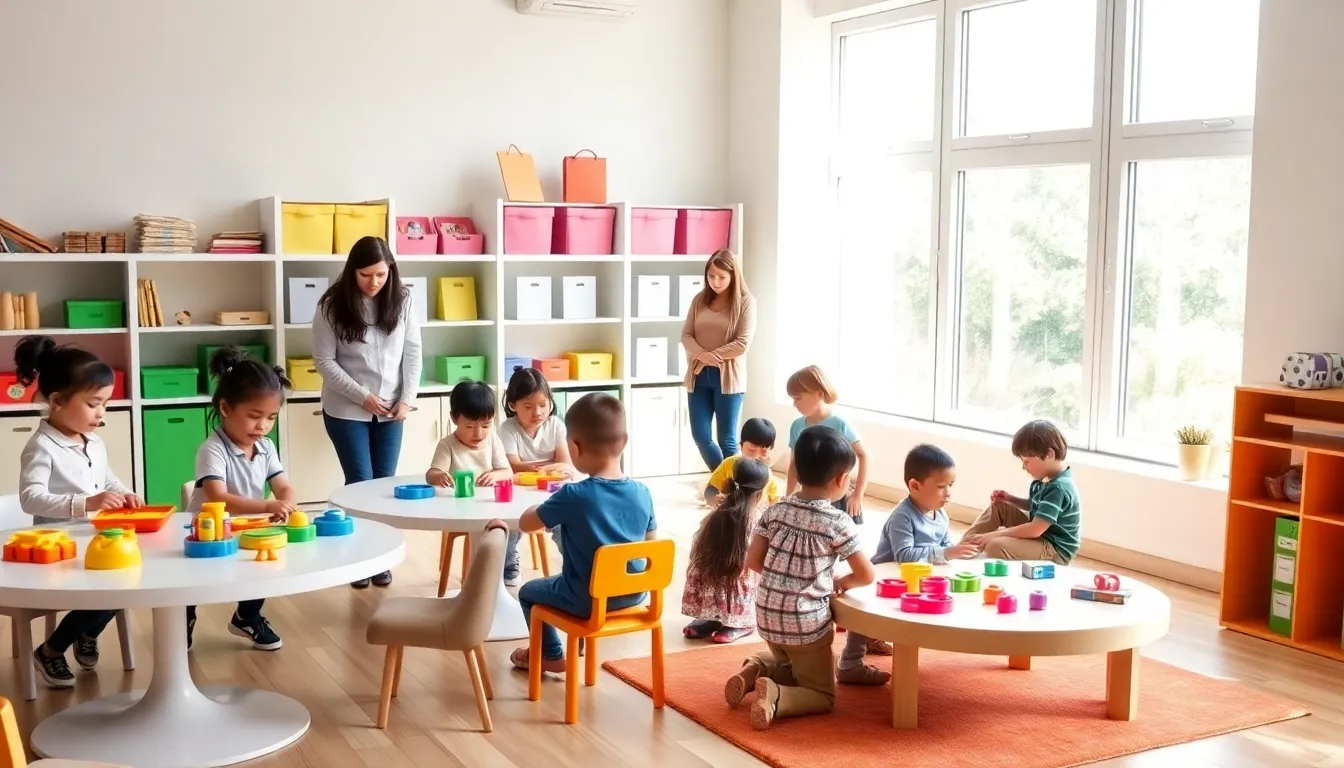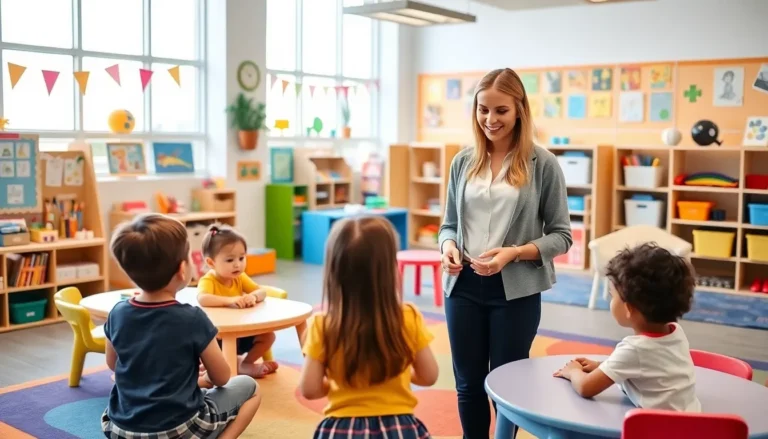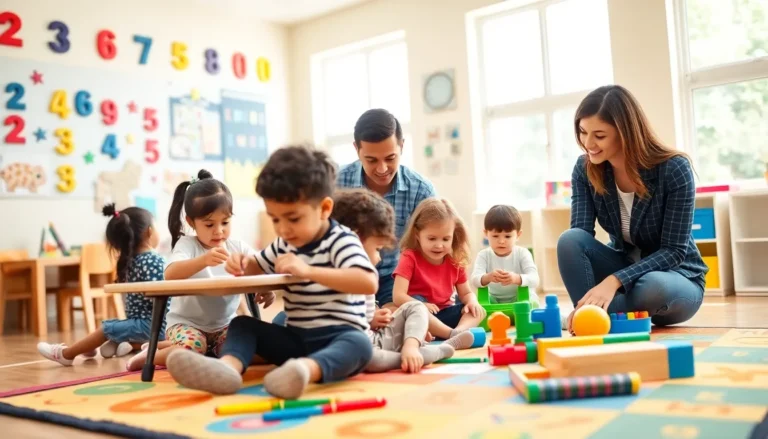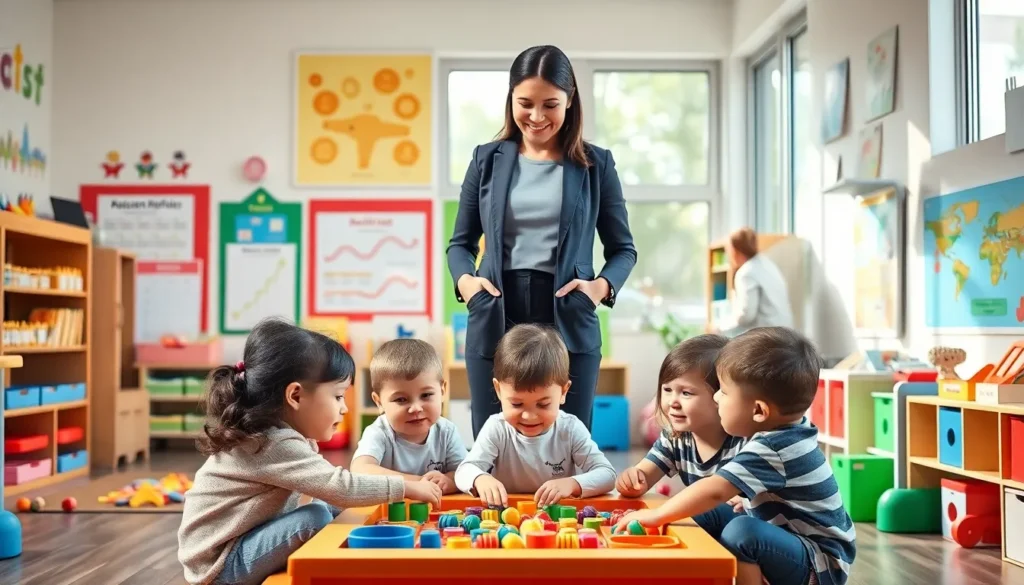Table of Contents
ToggleIf you’ve ever tried to figure out when to send your little one to preschool, you might have wondered if it’s more like a rite of passage or a game of hide and seek. Spoiler alert: it’s a bit of both. Understanding the right timing for preschool enrollment can feel like threading a needle in a haystack. In this text, we’ll explore various facets of preschool education, including age ranges, benefits, and tips for choosing the best fit, all while keeping it light and informative.
Understanding Preschool Education

The Importance of Early Childhood Education
Preschool education lays the foundation for a child’s future learning. Research consistently shows that kids who attend preschool are better prepared for the academic rigors of kindergarten and beyond. They jump into essential social skills, which help them blend in and make friends, rounding out the emotional toolkit they’ll need for life.
Key Benefits of Attending Preschool
The benefits of preschool aren’t just about numbers. Children who have preschool experience often show improved cognitive skills and emotional maturity. They learn to communicate effectively, work in teams, and develop self-discipline. Some might even say preschool isn’t just a school, but a little slice of life skill training.
Plus, engaging in structured learning at a young age keeps those inquisitive little minds busy. This means fewer moments of chaos at home when they’d otherwise be disassembling your living room couch.
Typical Age Ranges for Preschool Enrollment
Variations in Preschool Start Age by Region
When it comes to choosing when to send children to preschool, age standards vary quite a lot across regions. Generally, children begin preschool between the ages of 3 and 5. In some locales, kids can start as early as 2 years old, while in others, 4 may be the magic number.
It’s fascinating to see that some places emphasize the importance of that extra year, believing that the additional time at home builds a stronger foundation for future learning. Country and culture can play significant roles in these decisions, making it crucial for parents to understand their own community norms.
Factors Influencing Preschool Age Decisions
Child Development Milestones
Age isn’t the only factor that determines when a child should start preschool. Developmental milestones, like a child’s social skills, language abilities, and emotional readiness, are equally crucial. If a child is eagerly asking to play with friends and exhibits curiosity, it may be a good indicator that they are ready for the next step.
Parental Considerations and Readiness
Parents often have their own concerns about their child’s readiness. Sometimes fear of separation anxiety looms larger than the kiddo’s desire to explore. Alternatively, if parents feel that their child thrives with structured activities and social interaction, they might be more inclined to enroll sooner. One does not simply rush into preschool: it’s a thoughtful decision that can shape a child’s educational journey.
How to Choose the Right Preschool for Your Child
Questions to Ask When Selecting a Preschool
Choosing the right preschool can feel like a challenging job. Parents should consider questions like: What is the educational philosophy? Does the program balance structured learning and play? What are the teacher-to-student ratios? Finding answers to these questions can illuminate the best fit for your child.
The Role of Play in Preschool Programs
Play is everything in preschool. It’s where the magic happens. Through play, children discover their interests, sharpen their skills, and learn teamwork. Programs incorporating play effectively do more than entertain: they evolve young minds and foster critical thinking, skills that come in handy throughout life.







